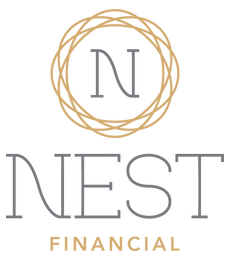Trust funds, often seen as a cornerstone of estate planning, are particularly crucial for high net worth individuals. Balancing growth and protection of assets, these financial instruments offer a approach to managing substantial wealth.

Understanding Trust Funds for High Net Worth Individuals
Contrary to popular belief, trust funds are not exclusive to the realms of the ultra-rich; they represent a practical and strategic tool for anyone looking to safeguard their assets. At their core, trust funds establish a legal framework wherein assets are placed under the stewardship of a trustee for the benefit of one or more beneficiaries. This arrangement is designed to offer a sophisticated blend of control over asset distribution, enhanced protection from potential creditors or legal judgments, and significant tax benefits.
For high net worth individuals, the strategic use of trust funds goes beyond mere asset protection; it is an integral component of effective estate planning. Trusts allow for the meticulous management of substantial wealth, ensuring that assets are not only preserved but also distributed according to the grantor’s precise wishes. This can be particularly important for individuals with complex family structures, diverse investment portfolios, and the desire to leave a lasting legacy that reflects their values and goals.
Key Benefits of Trust Funds for Estate Management:
- Controlled Asset Distribution: Trust funds enable grantors to specify exactly how and when assets are to be distributed to beneficiaries. This can include stipulations based on age, milestones, or specific conditions, offering a level of control that is not possible through a will alone.
- Asset Protection: By placing assets within a trust, they are generally shielded from claims by creditors, legal disputes, and even marital dissolution proceedings. This protection is vital for preserving the value of the estate for future generations.
- Tax Efficiency: Trusts can be structured to minimize estate taxes, gift taxes, and even income taxes in certain cases. For high net worth individuals, the tax planning capabilities of trusts are an essential consideration in estate planning, potentially saving substantial amounts in taxes over time.
- Privacy: Unlike wills, which become public records through the probate process, trusts can maintain the privacy of the estate and the beneficiaries. This privacy is often a key consideration for those seeking to manage their affairs discreetly.
Evaluating the Benefits of Trust Funds in Estate Planning
Trust funds play a pivotal role in estate planning, offering benefits that meet the complex needs of high net worth individuals. These financial instruments not only safeguard assets but also ensure the management and distribution of those assets align with the grantor’s wishes, focusing on efficiency, security, and legacy preservation.
1. Tax Efficiency:
A major advantage of trust funds lies in their ability to provide tax efficiency. Individuals strategically setting up trust funds can significantly reduce the estate taxes their estates face upon death, thus preserving more wealth for their beneficiaries. Trusts can bypass the probate process, cutting down on estate administration costs and avoiding the lengthy asset distribution process. Moreover, specific types of trusts can tax the income generated by trust assets at a lower rate or allow the grantor to gift assets into the trust, reducing their taxable estate.
2. Asset Protection:
Trusts actively protect assets from creditors, legal judgments, and family disputes. When placing assets in a trust, the trust legally owns them, not the beneficiaries, which makes it challenging for creditors to access those assets. This protection is crucial for high net worth individuals vulnerable to legal challenges. Trusts also safeguard assets from beneficiaries’ poor financial decisions, preserving wealth for future generations or specific purposes the grantor outlines.
3. Simplifying Wealth Transfer:
Trust funds simplify transferring wealth to the next generation or designated beneficiaries. They enable direct and controlled asset distribution, bypassing the often lengthy and public probate process. This maintains privacy and ensures assets distribute according to the grantor’s precise instructions. Trusts can provide for beneficiaries at certain ages or milestones, fund educational expenses, or support lifelong financial needs, offering a customized approach to wealth management and legacy planning.
4. Flexibility and Control:
Trust funds are highly flexible, allowing grantors to specify exactly how, when, and to whom their assets are distributed. This control is particularly appealing for high net worth individuals with specific goals for their legacy, including supporting charitable causes, providing for family members with disabilities, or ensuring that a business remains within the family. The ability to amend or adapt trusts based on changing circumstances or laws is an invaluable feature of trust-based estate planning.
5. Preserving Family Harmony:
By clearly outlining the distribution of assets, trusts can help avoid disputes among family members, ensuring that the grantor’s wishes are executed without ambiguity. This clarity can be instrumental in preserving family harmony after the grantor’s passing, as it reduces the potential for misunderstandings or conflicts over inheritance.

High Net Worth Trusts: A Closer Look
Trusts designed for high net worth individuals are not your average estate planning tools. These sophisticated instruments are crafted to address the nuances of managing and preserving wealth on a scale that standard trusts simply aren’t built for. High net worth trusts come into play when the stakes are higher, involving larger estates, more complex financial scenarios, and a broader range of strategic objectives.
1. Customization for Complex Estates:
The hallmark of high net worth trusts lies in their capacity for extensive customization. The complexity of the estates involved requires active tailoring of these trusts to manage a wide range of assets, from traditional liquid assets to unique holdings like international investments, real estate portfolios, business interests, and even art collections. Such a degree of customization actively ensures the effective management of all assets, directly aligning with the grantor’s specific wishes and strategic goals.
2. Advanced Strategies for Asset Management:
High net worth trusts employ advanced strategies that go beyond simple asset protection and wealth transfer. They might incorporate mechanisms for dynamic investment management, enabling the trust to adapt to changing market conditions while still aligning with the long-term financial goals of the estate. This can include strategies for hedging, leveraging tax-efficient investment vehicles, or employing trust protectors to oversee and adjust the trust’s investment strategy as necessary.
3. Minimizing Tax Exposure:
For high net worth individuals, minimizing tax exposure is a critical concern that these trusts address with precision. Through strategic planning and structuring, high net worth trusts can significantly reduce the taxable estate, leveraging exemptions, deductions, and other tax advantages. Techniques such as strategic gifting, generation-skipping transfer trusts, or irrevocable life insurance trusts are commonly used to minimize the estate, gift, and income tax burden on the estate and its beneficiaries.
4. Asset Protection and Privacy:
Beyond tax efficiency, high net worth trusts offer robust mechanisms for asset protection. They shield the estate from potential creditors, legal disputes, and other vulnerabilities that could threaten the wealth of the beneficiaries. Additionally, these trusts can provide a level of privacy for the estate and its beneficiaries that is not possible through a public probate process, keeping the financial affairs of the estate confidential and out of the public eye.
5. Charitable Giving and Legacy Planning:
Many high net worth individuals are interested in using their wealth to make a lasting impact. High net worth trusts can facilitate sophisticated charitable giving strategies, allowing for significant philanthropic contributions while also benefiting the estate and its beneficiaries through tax advantages. Whether it’s setting up a charitable lead trust, a charitable remainder trust, or incorporating a private foundation into the estate plan, these trusts can fulfill philanthropic goals in a tax-efficient manner.

Tailoring Trust Funds to Individual Needs
The essence of effective wealth management for high net worth individuals lies in the customization of trust funds. Beyond the basic premise of asset protection and estate planning, trust funds offer a versatile framework that can be intricately tailored to address the unique financial goals, family dynamics, and even philanthropic aspirations of an individual. The process involves selecting the right type of trust and structuring it in a way that aligns with the individual’s specific objectives and circumstances.
1. Charitable Remainder Trusts (CRTs):
For those with philanthropic goals, a Charitable Remainder Trust offers an elegant solution for balancing charitable giving with income generation. CRTs allow individuals to donate assets to the trust, which then provides them or other named beneficiaries with a stream of income for a term of years or for life. At the end of the term, the remaining assets are transferred to designated charities. This not only fulfills charitable intentions but also offers potential tax benefits, including income tax deductions and estate tax reductions.
2. Offshore Trusts:
For high net worth individuals with international assets or concerns about domestic legal judgments, an offshore trust can offer enhanced asset protection and privacy. By placing assets in jurisdictions with favorable legal protections, these trusts can safeguard wealth against potential creditors and legal disputes more effectively than domestic trusts. However, they require careful navigation of international laws and reporting requirements to ensure compliance and maximize benefits.
3. Revocable vs. Irrevocable Trusts:
Choosing between a revocable trust, which allows for changes and adjustments over the grantor’s lifetime, and an irrevocable trust, which does not, is a key decision in trust planning. While revocable trusts offer flexibility and continued control over the assets, irrevocable trusts provide stronger asset protection and tax benefits, making them a preferred choice for long-term estate planning and wealth preservation.
4. Dynasty Trusts:
For those looking to extend their legacy across multiple generations, Dynasty Trusts offer a way to pass wealth down without the assets being subject to estate taxes at each generational transfer. This can significantly enhance the long-term growth and preservation of wealth for a family, ensuring that the grantor’s legacy impacts many future generations.
Future Trends in Trust Funds for High Net Worth Estate Planning
The realm of trust funds, especially in high net worth estate planning, continuously evolves. A mix of factors, such as technological innovation, legislative changes, and global economic shifts, drives this evolution. Individuals looking to optimize their estate planning must understand and anticipate these trends.
1. Technological Advancements:
Technological innovation is reshaping the administration and management of trust funds. Digital platforms and blockchain technology, for example, are introducing new levels of efficiency, transparency, and security. These technologies enable more sophisticated management of assets, secure record-keeping, and streamlined communications between trustees and beneficiaries. Looking forward, the integration of artificial intelligence could further enhance decision-making processes and personalized estate planning strategies, making it easier to manage complex trusts and diverse asset portfolios.
2. Changing Tax Laws:
Tax legislation is perennially in flux, with implications for estate planning strategies and the structuring of trust funds. High net worth individuals must stay informed about these changes to navigate potential impacts on their estate’s tax liability effectively. This could mean adapting trust structures to comply with new laws or leveraging legislative changes to maximize tax advantages. Proactive engagement with legal and financial advisors is essential to adjust strategies in response to tax law evolution, ensuring that trusts remain efficient and compliant.
3. Global Economic Shifts:
The global economy influences estate planning through its effect on investment markets, asset values, and international tax considerations. Economic trends, such as interest rate changes, inflation rates, and geopolitical events, can affect the valuation and management of assets held within trusts. High net worth individuals with international assets or investments must be particularly vigilant, as shifts in the global economic landscape can have pronounced effects on cross-border tax implications and asset protection strategies.
4. Increasing Emphasis on Sustainability and Ethical Investing:
High net worth individuals are increasingly aligning their estate planning with sustainability goals and ethical investment principles. This alignment manifests in the structuring of trusts that prioritize investments in environmentally sustainable ventures, social enterprises, or ethical funds. Increasingly, individuals use trusts as vehicles for impact investing, aiming not only for financial return but also to positively impact society or the environment.
5. Focus on Family Governance and Legacy Planning:
Future trends highlight more focus on family governance within trusts. These aim to educate and involve beneficiaries in estate and legacy planning. They foster collaborative relationships between trustees, beneficiaries, and advisors. Trusts become platforms for financial literacy, upholding family values, and aligning wealth with family goals across generations.
FAQs
What makes a trust fund essential for high net worth planning?
Trust funds provide flexibility, asset protection, and tax benefits. They enable precise control over asset distribution and secure assets from creditors and legal issues. They can also lower taxable estates with strategic planning. Trusts meet specific family needs, goals, and philanthropic wishes, making them key for legacy and wealth management.
How do tech advancements affect trust fund management?
Tech advancements transform trust fund management with efficiency, accuracy, and security. Digital platforms enable smooth trust administration and real-time asset tracking. Blockchain ensures secure, immutable records. Artificial intelligence personalizes and adapts strategies, optimizing asset management. For high net worth individuals, these innovations offer robust, flexible estate planning tools.
Are trust funds beneficial only for the ultra-rich?
No, trust funds benefit anyone seeking to protect assets, plan for family futures, or reduce taxes. They offer control, protection, and efficiency for all estate sizes. Trust funds are valuable for comprehensive estate planning and wealth management, not just for the ultra-rich.
Conclusion
Trust funds offer high net worth individuals a robust tool for estate planning, asset protection, and wealth management. Understanding the nuances of these financial instruments and keeping abreast of evolving trends are vital in maximizing their benefits. For personalized advice and strategies, consulting with a financial expert is always recommended.
This article is brought to you by the wizard behind the scenes with 23 years of experience, Dan Dillard. Of course with his workshop of helpers including some handy hi-tech sourcing.
If you’re finding it challenging to stay on top of all the changes, connect with our financial planning professionals by scheduling a no-obligation call. At NEST Financial, we can help make crypto not quite so cryptic.
Find us on:
LinkedIn Facebook Yelp Twitter
If you like reading more entrepreneurial stories In Austin check out Dan’s other company foundingAustin. If you are into podcasts click here.
DISCLAIMER: We are legally obligated to remind you that the information and opinions shared in this article are for educational purposes only. These are not financial planning or investment advice. For guidance about your unique goals, drop us a line at info@nestfinancial.net

